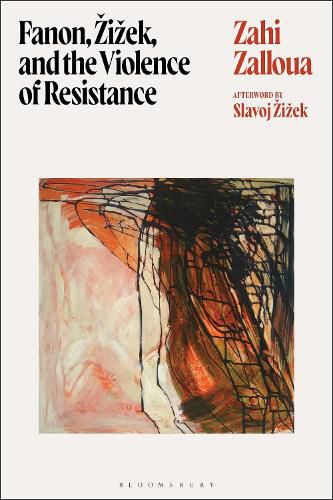Readings Newsletter
Become a Readings Member to make your shopping experience even easier.
Sign in or sign up for free!
You’re not far away from qualifying for FREE standard shipping within Australia
You’ve qualified for FREE standard shipping within Australia
The cart is loading…






In a novel pairing of anti-colonial theorist Frantz Fanon with Marxist-Lacanian philosopher Slavoj Zizek, Zahi Zalloua explores the ways both thinkers expose the violence of political structures.
This inventive exploration advances an anti-racist critique, describing how ontology operates in a racial matrix to produce some human bodies that count and others (deemed not-quite- or non-human) that do not. For Fanon and Zizek, the violence of ontology must be met with another form of violence, a revolutionary violence that delegitimizes the logic of the symbolic order and troubles its collective fantasies. Whereas Fanon begins his challenge to ontology by exposing its historical linkages to Europe's destructive imperialist procedures before proceeding to "stretch" Marxism, along with psychoanalysis, to account for the crushing (neo)colonial situation, Zizek premises his work on the refusal to accept the totality of ontology. Because of these different points of intervention, Fanon and Zizek together offer a powerful and multifaceted assessment of the liberal anti-racist paradigm whose propensity for identity politics and aversion to class struggle silence the cry of the dispossessed and foreclose radical change. Avoiding contemporary separatist temptations (decoloniality and Afropessimism), and breaking with a non-violent, sentimentalist futurology that announces more of the same, Fanon and Zizek point in a different direction, one that eschews identitarian thought in favor of a collective struggle for freedom and equality.
$9.00 standard shipping within Australia
FREE standard shipping within Australia for orders over $100.00
Express & International shipping calculated at checkout
In a novel pairing of anti-colonial theorist Frantz Fanon with Marxist-Lacanian philosopher Slavoj Zizek, Zahi Zalloua explores the ways both thinkers expose the violence of political structures.
This inventive exploration advances an anti-racist critique, describing how ontology operates in a racial matrix to produce some human bodies that count and others (deemed not-quite- or non-human) that do not. For Fanon and Zizek, the violence of ontology must be met with another form of violence, a revolutionary violence that delegitimizes the logic of the symbolic order and troubles its collective fantasies. Whereas Fanon begins his challenge to ontology by exposing its historical linkages to Europe's destructive imperialist procedures before proceeding to "stretch" Marxism, along with psychoanalysis, to account for the crushing (neo)colonial situation, Zizek premises his work on the refusal to accept the totality of ontology. Because of these different points of intervention, Fanon and Zizek together offer a powerful and multifaceted assessment of the liberal anti-racist paradigm whose propensity for identity politics and aversion to class struggle silence the cry of the dispossessed and foreclose radical change. Avoiding contemporary separatist temptations (decoloniality and Afropessimism), and breaking with a non-violent, sentimentalist futurology that announces more of the same, Fanon and Zizek point in a different direction, one that eschews identitarian thought in favor of a collective struggle for freedom and equality.